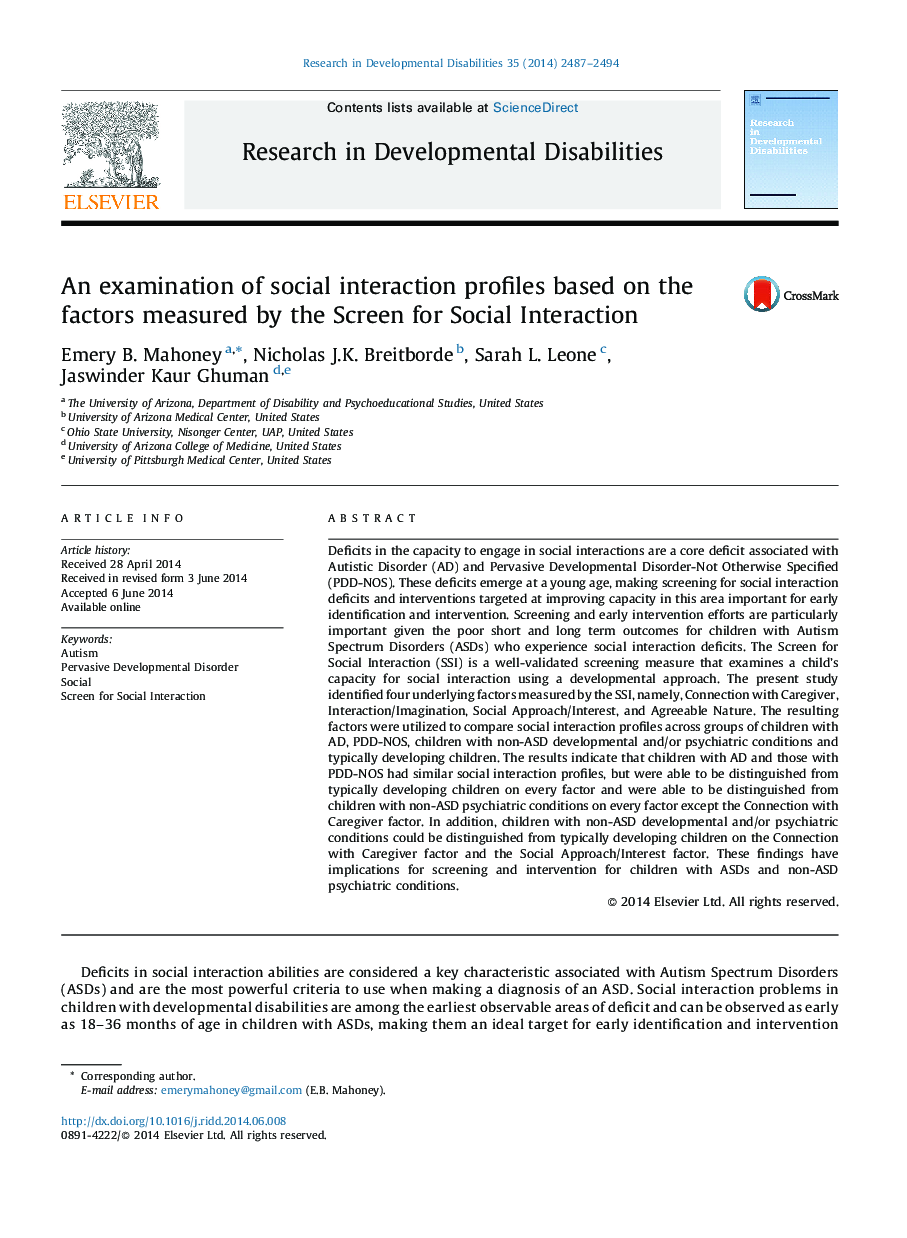| Article ID | Journal | Published Year | Pages | File Type |
|---|---|---|---|---|
| 10317372 | Research in Developmental Disabilities | 2014 | 8 Pages |
Abstract
Deficits in the capacity to engage in social interactions are a core deficit associated with Autistic Disorder (AD) and Pervasive Developmental Disorder-Not Otherwise Specified (PDD-NOS). These deficits emerge at a young age, making screening for social interaction deficits and interventions targeted at improving capacity in this area important for early identification and intervention. Screening and early intervention efforts are particularly important given the poor short and long term outcomes for children with Autism Spectrum Disorders (ASDs) who experience social interaction deficits. The Screen for Social Interaction (SSI) is a well-validated screening measure that examines a child's capacity for social interaction using a developmental approach. The present study identified four underlying factors measured by the SSI, namely, Connection with Caregiver, Interaction/Imagination, Social Approach/Interest, and Agreeable Nature. The resulting factors were utilized to compare social interaction profiles across groups of children with AD, PDD-NOS, children with non-ASD developmental and/or psychiatric conditions and typically developing children. The results indicate that children with AD and those with PDD-NOS had similar social interaction profiles, but were able to be distinguished from typically developing children on every factor and were able to be distinguished from children with non-ASD psychiatric conditions on every factor except the Connection with Caregiver factor. In addition, children with non-ASD developmental and/or psychiatric conditions could be distinguished from typically developing children on the Connection with Caregiver factor and the Social Approach/Interest factor. These findings have implications for screening and intervention for children with ASDs and non-ASD psychiatric conditions.
Related Topics
Life Sciences
Neuroscience
Behavioral Neuroscience
Authors
Emery B. Mahoney, Nicholas J.K. Breitborde, Sarah L. Leone, Jaswinder Kaur Ghuman,
